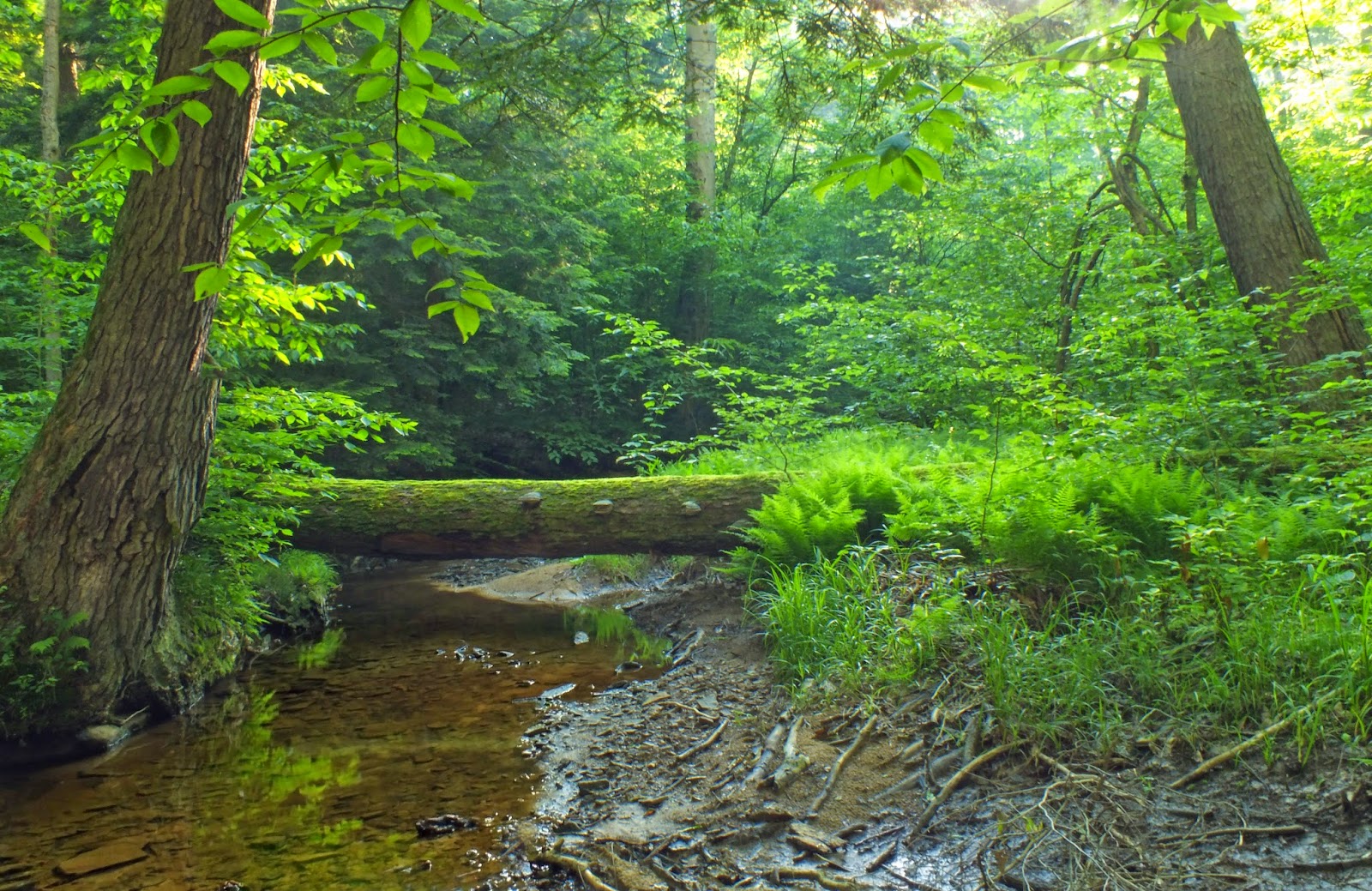Discover The Best Natural Shampoo For Thin Fine Hair: A Gentle Approach
Finding the right hair care can feel like a big puzzle, especially when your hair is thin and fine. It's a common story, really, that many folks struggle with limp strands, a lack of body, or even irritation from everyday products. You might be wondering if there's a better way to treat your delicate hair, something that feels more in tune with what your scalp and strands truly need. That's where the idea of natural shampoo for thin fine hair starts to shine through, offering a different path to healthier, happier hair.
You see, when we talk about "natural," we often think about things as they are found in nature, without a lot of human interference. It's about ingredients that are more or less as they come, perhaps with very little processing and no added chemical bits. This kind of thinking, you know, it often leads us to consider what's truly good for us and for the world around us. So, for your hair, this could mean moving away from harsh cleansers and towards something that feels a bit more gentle, something that truly supports your hair's own natural tendencies.
This approach is pretty much about embracing what's simple and pure, rather than relying on complex, manufactured formulas. It's about giving your thin, fine hair a chance to thrive without being weighed down or stripped bare. We're going to look closely at why natural options might be just what your hair has been asking for, and how to pick the very best one. This is, in a way, about finding a product that is truly suitable and successful for your hair without much fuss or difficulty, much like someone who is just a natural at something they try for the first time.
Table of Contents
- What "Natural" Means for Your Hair
- Why Thin, Fine Hair Needs Special Care
- The Benefits of Natural Shampoo for Thin, Fine Hair
- Key Natural Ingredients to Look For (and Why)
- Ingredients to Steer Clear Of
- Making the Switch: Tips for Using Natural Shampoo
- Finding Your Perfect Match
- Frequently Asked Questions (FAQs)
What "Natural" Means for Your Hair
When we talk about something being "natural," it often points to a few key ideas. As my text says, it means being "free from pretension or calculation," suggesting something straightforward and honest. For hair care, this implies products that aren't trying to trick your hair with temporary fixes or heavy coatings. Instead, they aim to work with your hair's own structure, helping it to be its best self, you know?
It also means, very often, that something is "as found in nature and not involving anything made or done by people" in a complex, artificial way. Think about ingredients that come directly from plants, minerals, or other natural sources, rather than being cooked up in a lab with lots of chemical steps. This is about embracing the real, physical existence of things that are simply "of, existing in, or produced by nature."
Furthermore, my text mentions "nutrition having undergone little or no processing and containing no chemical additives." This idea translates really well to shampoo. A truly natural shampoo for thin fine hair would likely have ingredients that are minimally changed from their original state, without a bunch of synthetic colors, fragrances, or harsh preservatives. It's about choosing something that feels more in accordance with nature itself, allowing your hair to breathe and thrive without heavy burdens, you see.
Why Thin, Fine Hair Needs Special Care
Thin and fine hair, you know, it's a bit different from other hair types. Each strand is typically smaller in diameter, and there might be fewer hair follicles on the scalp overall. This makes it particularly prone to looking flat, feeling greasy quickly, and often appearing a bit lifeless. It’s a challenge many people face, actually, trying to get some bounce and life into their hair.
Because of its delicate nature, thin hair can be easily weighed down by heavy products. Shampoos with strong cleansers can strip away natural oils, which then prompts the scalp to produce even more oil, leading to a greasy look faster. This cycle, it's not ideal for anyone looking for fresh, voluminous hair. Plus, harsh chemicals can sometimes irritate a sensitive scalp, which is a common concern for people with finer hair.
What thin hair really needs, then, is a gentle touch. It wants cleansing that doesn't overdo it, and ingredients that add lightness and volume, rather than making things feel heavy. This is why a natural approach, with its focus on less processing and fewer additives, could be a very suitable choice. It's about treating your hair with the respect it deserves, allowing it to feel clean and airy without any undue stress, you know, just a little bit of kindness.
The Benefits of Natural Shampoo for Thin, Fine Hair
Switching to a natural shampoo for thin fine hair can bring about some pretty noticeable changes. One of the biggest upsides is that these shampoos often clean without stripping your hair. Traditional shampoos, you see, can sometimes be too aggressive, taking away not just dirt and oil, but also your hair's important natural moisture. Natural options tend to be much softer, leaving your hair feeling clean but not dry or brittle, which is very good for delicate strands.
Another great thing is the focus on scalp health. A healthy scalp is, quite literally, the foundation for healthy hair growth. Many natural shampoos include ingredients that calm irritation, balance oil production, and nourish the scalp, which can be particularly helpful if you experience itchiness or flakiness. This gentle care can lead to less breakage and, in some cases, even encourage fuller-looking hair over time. It’s about creating a better environment for your hair to grow, you know, a bit like planting a seed in really good soil.
Furthermore, because natural shampoos typically avoid heavy silicones and synthetic polymers, your thin hair won't get weighed down. This means more natural bounce and volume, which is often what people with fine hair are really looking for. You might find your hair feels lighter, airier, and more manageable, with a natural sheen that isn't due to artificial coatings. Plus, using products with fewer synthetic chemicals can be a real peace of mind, for you and for the planet, as a matter of fact. It's a choice that often feels right on many levels.
Key Natural Ingredients to Look For (and Why)
When you're searching for a good natural shampoo for thin fine hair, knowing what ingredients to look for can make all the difference. These are the components that really work to give your hair what it needs without any unnecessary fuss. It's about finding things that are truly beneficial, you know, like a natural fit for your hair type.
Volumizing Helpers
For thin hair, volume is often the main goal. Look for ingredients that can lift the hair without adding weight. Things like rice protein or wheat protein are really good at this; they can help strengthen the hair shaft and give it a bit more body, almost like a subtle scaffolding. Similarly, extracts from plants like ginseng or rosemary can stimulate the scalp, which might support healthier, more robust hair growth over time. These are the kinds of ingredients that tend to make a noticeable difference in how full your hair appears, without feeling heavy, you know, just a little bit of lift.
Scalp Soothers
A healthy scalp is super important for fine hair, as irritation can really affect hair quality. Ingredients like aloe vera or chamomile extract are wonderfully calming and can help reduce any redness or itchiness. Tea tree oil, when used in small amounts, can be great for balancing oil and keeping the scalp clean, which is very helpful if your fine hair tends to get greasy quickly. These natural soothers, they help create a happy environment for your hair to grow, you know, a very supportive base.
Gentle Cleansers
The cleansing agents in natural shampoos are typically much milder than those in conventional products. Look for plant-derived surfactants like decyl glucoside, coco-glucoside, or sodium cocoyl isethionate. These create a gentle lather that cleans effectively without stripping your hair's natural oils. They are derived from things like coconut or corn, making them a much softer option for delicate strands. It's about getting clean without being harsh, you know, a truly balanced approach.
Ingredients to Steer Clear Of
Just as important as knowing what to look for is knowing what to avoid, especially when you have thin, fine hair. Some common shampoo ingredients can actually do more harm than good for your hair type, leaving it feeling flat, greasy, or even irritated. It's about making choices that truly support your hair's well-being, you know, being a bit discerning.
First off, try to stay away from sulfates, such as sodium lauryl sulfate (SLS) and sodium laureth sulfate (SLES). These are very strong detergents that create a lot of foam, but they can also strip your hair of its natural oils, leading to dryness and sometimes even an overproduction of oil by your scalp to compensate. For fine hair, this can mean it gets greasy faster and looks even flatter, which is not what you want, obviously.
Another thing to watch out for is silicones, often listed as ingredients ending in "-cone" or "-siloxane." While they can make hair feel smooth and shiny initially, they don't actually nourish the hair. Instead, they form a coating that can build up over time, weighing down fine hair and making it look dull and lifeless. This buildup can also prevent moisture from getting into the hair shaft, which is a bit counterproductive, really.
Also, artificial fragrances and colors can be a source of irritation for sensitive scalps. These synthetic additives offer no benefit to your hair's health and can sometimes trigger allergic reactions or dryness. When you're aiming for a truly natural shampoo for thin fine hair, opting for products that get their scent from essential oils or are simply unscented is usually a better bet. It's about keeping things simple and pure, you know, without any unnecessary extras.
Parabens, which are used as preservatives, are another group of chemicals many people prefer to avoid in natural products. While they extend shelf life, some people choose to limit their exposure to them. Similarly, phthalates, sometimes found in synthetic fragrances, are also often excluded from natural formulations. Making these choices is, in a way, about aligning your hair care with a broader desire for products that are "free from pretension or calculation" and more "as found in nature," as my text suggests.
Making the Switch: Tips for Using Natural Shampoo
Moving from conventional shampoos to natural ones can sometimes feel a bit different at first. Your hair and scalp might need a little time to adjust, which is perfectly normal, you know. It's not always an instant change, but the benefits can be really worth it in the long run.
When you first start using a natural shampoo for thin fine hair, you might notice less lather than you're used to. This is actually a good sign! It means fewer harsh foaming agents are present. Don't feel like you need to use more product to get a big lather; a small amount, worked gently into your scalp, is usually plenty. Focus on cleansing your scalp, as that's where most of the oil and buildup happens. The shampoo will naturally run down your hair strands as you rinse, cleaning them without needing extra scrubbing, you know, just a light touch.
Your hair might also feel a bit different during the first few washes, perhaps even a little "waxy" or less silky than before. This is often called the "detox" phase. It happens because your hair is shedding the buildup from silicones and other synthetic ingredients that were coating it. Give it some time, perhaps a couple of weeks, for your hair to truly adjust and reveal its natural texture. During this period, you might find that rinsing really thoroughly helps, and using a very light, natural conditioner on just the ends of your hair could be beneficial. Learn more about hair health on our site, as a matter of fact.
Consider washing your hair a little less frequently if you can. While natural shampoos are gentle, daily washing can still be a lot for fine hair. Spacing out washes can help your scalp regulate its oil production more effectively, leading to less greasiness over time. On days you don't wash, you might use a natural dry shampoo or simply tie your hair up. This adjustment, you know, it's about listening to what your hair needs and giving it a chance to find its own rhythm. It's a natural process, really, this kind of adaptation.
Finding Your Perfect Match
Choosing the right natural shampoo for thin fine hair is a bit like finding the perfect pair of shoes; what works for one person might not be quite right for another. It often involves a little bit of trial and error, but knowing what to look for can certainly speed up the process. It's about understanding your hair's unique personality, you know, what makes it truly happy.
Start by reading ingredient lists very carefully. Look for those gentle cleansers and beneficial plant extracts we talked about earlier. Avoid the common culprits like sulfates and heavy silicones. Many brands that focus on natural products will proudly highlight their "free from" lists, making it easier to spot what they've left out. This attention to detail, you know, it really helps in making an informed choice.
Consider your specific hair concerns beyond just being thin and fine. Do you also have an oily scalp? Look for shampoos with ingredients like witch hazel or apple cider vinegar. Is your scalp sensitive? Aloe vera or chamomile might be your best friends. Are you aiming for more growth? Rosemary or peppermint could be helpful additions. Thinking about these extra details can really narrow down your options and lead you to a product that addresses all your needs, as a matter of fact. You can also explore options on pages like Healthline's natural shampoo guide for more general insights.
Don't be afraid to try a few different natural brands or formulations. What might seem perfect on paper could feel different on your hair. Give each new shampoo a fair chance, perhaps a few weeks, to see how your hair truly responds after the initial adjustment period. Sometimes, it takes a little patience to discover what truly works best for you. This journey of discovery, you know, it's part of finding what feels most "natural" and effective for your own unique hair. It's quite a personal thing, really, this hair care business.
Frequently Asked Questions (FAQs)
Does natural shampoo make hair thicker?
Natural shampoo doesn't typically make individual hair strands thicker, because hair thickness is mostly determined by genetics. However, it can certainly help your hair appear fuller and more voluminous. By avoiding heavy, coating ingredients and promoting a healthier scalp, natural shampoos can reduce buildup that weighs hair down. This means your thin, fine hair can stand up more, giving the impression of greater body and fullness, you know, a bit like a gentle lift.
What ingredients should I avoid in shampoo for fine hair?
For fine hair, it's generally a good idea to steer clear of harsh sulfates (like SLS and SLES) that can strip natural oils, leading to dryness or even increased oil production. Also, heavy silicones, often found as ingredients ending in "-cone" or "-siloxane," can build up and weigh down fine hair, making it look flat and dull. Artificial fragrances and colors can sometimes irritate sensitive scalps, so opting for naturally scented or unscented products is often a better choice, you know, just to be on the safe side.
Is natural shampoo good for oily thin hair?
Yes, natural shampoo can be very good for oily thin hair, actually. Many conventional shampoos for oily hair use strong detergents that strip the scalp, which can make it produce even more oil in response. Natural shampoos, however, often contain gentle cleansers and balancing ingredients like tea tree oil, witch hazel, or apple cider vinegar. These can help regulate oil production over time, cleansing effectively without over-drying, which is very helpful for keeping oily, fine hair feeling fresh and light, you know, a more balanced approach.

🔥 Download Beautiful Nature Landscape Scenery HD Wallpaper by

Nature Scenery Wallpapers - Top Free Nature Scenery Backgrounds
_(1).jpg)
20 amazing pictures natural ~ Welcome To Tourism covers